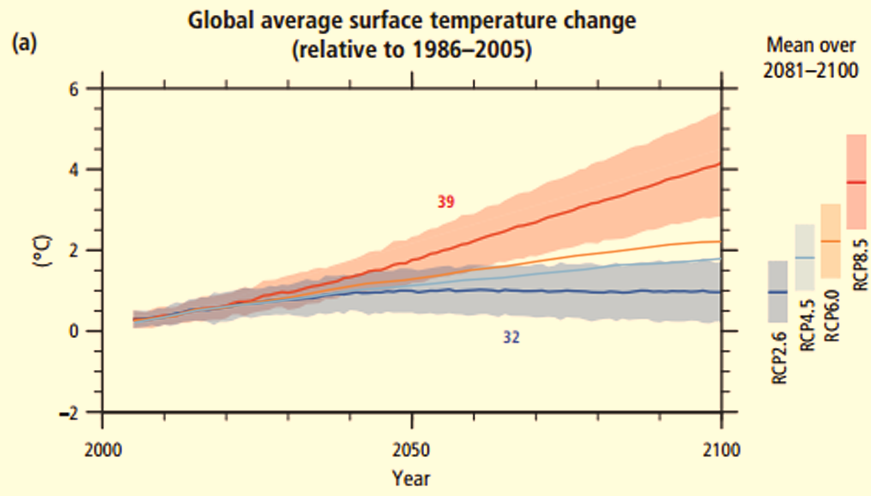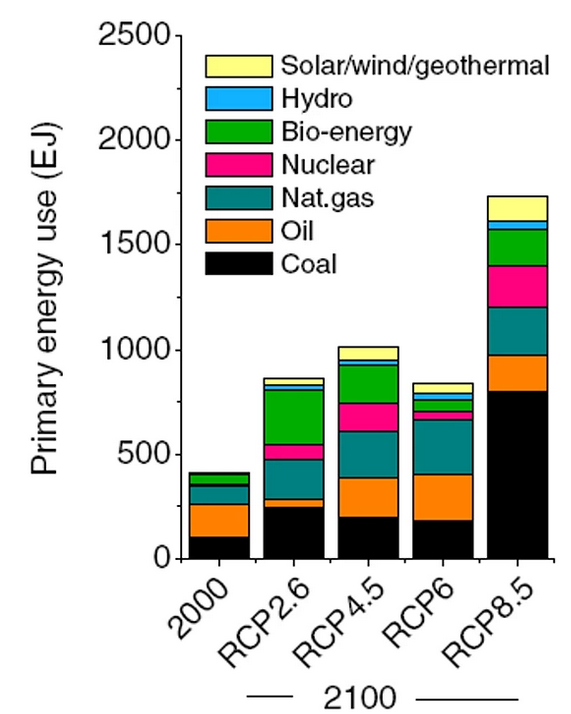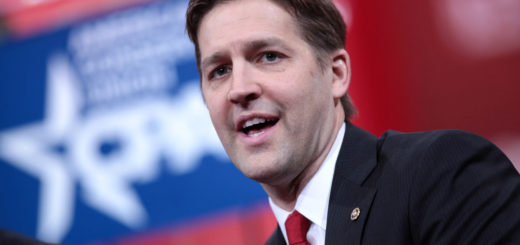Is There Any Reasonable ‘Climate Denial’?

By MATT SHAPIRO
In his recent speech to Congress, Pope Francis touched on a topic that is very important to him, so important that he wrote his first encyclical on it: climate change.
In his address to Congress this last week, Pope Francis mentioned climate change specifically as a problem the U.S. should be involved in solving:
“I call for a courageous and responsible effort to ‘redirect our steps’ (ibid., 61), and to avert the most serious effects of the environmental deterioration caused by human activity. I am convinced that we can make a difference and I have no doubt that the United States — and this Congress — have an important role to play. Now is the time for courageous actions and strategies, aimed at implementing a ‘culture of care.’”
Stepping back from that ledge for a moment, I want to ask a question that everyone who cares about climate change, whether for or against, should be able to answer. (Voting will not take you anywhere else; you’ll be able to continue after you vote.)
No peeking. At least try to answer the question mentally before continuing on.
 You really just want to ruin this for everyone, don’t you?
You really just want to ruin this for everyone, don’t you?
Only two kinds of people would answer “I don’t know” to that question. The first is people who are ignorant of any of the scientific data surrounding climate change and are willing to admit that. The other is people who know the science of climate change extremely well because they’ve read and remembered the IPCC report.
The Intergovernmental Panel on Climate Change is the organization that works to deliver the scientific consensus on climate change. They do so through a series of reports aimed at bringing together the best and most widely accepted data and projections on climate change.
Let me summarize, as cleanly as possible, what I mean when I say that “I don’t know” is the best answer. As a point of reference, I am assuming everything in the IPCC is the best, most accurate knowledge available compiled by earnest and honest scientists in pursuit of nothing but the pinnacle of climate knowledge. Some people don’t believe that, but this is my starting point.
Several levels of data and modeling drive the climate science debate. Many people think it is as simple as “We do something, the earth cools. We don’t do something, it warms.” A better way to think about it is “We are already on a path, heading in a certain direction with a certain velocity. Our actions may change that direction or speed a little, but it’s hard to say how much impact they will have.”
The policies that we put in place to battle climate change force business and industry to make changes in order to reduce CO2 emissions. These actions alter emissions that affect the amount of CO2 in the atmosphere. The addition of CO2 increases the CO2 concentration, which in turn drives the warming of the planet. The warming of the planet makes ice melt, which then drives the ocean rise. But this process follows a pattern and each step has a lag in it. Which means there is only so much we can do to limit the warming, less we can do to limit the ice melt and even less we can do to limit the rise of the oceans.
Every step on this process involves uncertainty. We have to create error bars around what we hope will happen and what will actually happen. I’ve tried to visualize this and failed miserably, so you get this conceptual visual below.

Add in the layers of uncertainty and predictions about the future get very messy. So much so that the IPPC’s worst-case scenario (which is “everything goes to hell”) and their best-case scenario (an impossible pipe dream) both include the possibility of 20-inch ocean rise. We see this even with temperature change, in which IPCC’s best-case scenario and the second worst case both include the change of 2.9° F temperature change. If you went 85 years into the future and that was what it looked like, you would have no idea if we followed the most painful climate mitigation path possible or did nothing at all.
So what are these different scenarios that give us such a range of results? The IPCC report floats four possible scenarios for the long-term future of the climate. These scenarios are memorably named RCP 2.6, RCP 4.5, RCP 6.0, and RCP 8.5. They are named this because they represent scenarios in which the earth absorbs a certain amount of energy (measured in watts per square meter). You can read more about the RCPs and the projections they come from here.
The prediction problem with the scenarios is that the uncertainty is extremely high. If you look at the temperature chart that comes from the IPCC “gold standard” report, you’ll see that the best-case scenario and the second-to-worst-case scenario overlap each other. And the middle scenarios are so close that they are almost indistinguishable.
 This chart is from the IPCC. I didn’t make it. This is the gold standard of climate science.
This chart is from the IPCC. I didn’t make it. This is the gold standard of climate science.
When we move to the topic of sea level rise, the uncertainty is so huge that the worst and best case scenarios actually overlap each other.
 Also from the IPCC. If someone says they “know the science” of climate change and don’t recognize this chart, they are liars.
Also from the IPCC. If someone says they “know the science” of climate change and don’t recognize this chart, they are liars.
How many ways can I say this without sounding like a jerk? There is a LOT of uncertainty in these models. The best-case scenario (which is that we basically transform into an energy utopia and also curb population growth) holds a potential that intersects with the worst-case scenario (which can be generously described as “YOLO, screw my kids, I’ll be dead by then”).
There is very little doubt that human emissions are causing CO2 levels to rise or that CO2 levels rising are causing most of the heating that the earth has seen in the last 50 years. But what is difficult about these pathways is that we’re not totally certain what actions can be taken to push the planet into (for example) the difference between a RCP4.5 verses an RCP6. The best way to measure which scenario we have taken is, honestly, to just keep measuring the CO2 levels and projecting from there.
Measuring CO2 levels in the atmosphere is pretty straightforward. What is not is measuring the effects of policies that are meant to decrease CO2 emissions. The policies themselves are usually based on emissions estimates that are based on energy usage estimates and which kinds of fuel is used to generate that energy. The goal is to bring down the carbon cost of supplying energy so much that, we are still reducing emissions even as energy needs rise.
We have some guides as to which energy pathways lead to which scenarios. Interestingly, they all assume higher levels of coal and oil than even what we see today. The biggest differences are the increases in nuclear, natural gas, and bio-energy generation. The energy generation that we most associate with the clean energy of the future (solar, wind, geothermal) are barely a blip on the energy radar. Even in the best-case scenario.

Reducing emissions is a laudable goal in isolation. But the fact is that we cannot connect the kinds of emission changes in most modern policy reliably to any change in the climate over the next 85 years. We’re mostly projecting that less emissions mean lower temperatures. This is likely true, but we don’t know how much.
Trying to look up unbiased information on climate change is like trying to find unbiased information on Cross Fit. The debate is filled with extreme deniers who say things like “CO2 doesn’t warm the planet” and avid supporters who claim that, despite the uncertainty that permeates the measurements, the policies, the implementations, and the models, they can tell you exactly how much money we will lose in the next year due to climate change.
But what matters less, I’ve found, is not the ability to reproduce the models (especially the economic models) but that they are able to put a number, no matter how unsupportable, to be used in the debate for one side or the other. Because, unfortunately, that’s what this is all about. Debate. Scoring points. Culture wars.
This is why no one ever calls out ThinkProgress when they predict climate change four times more extreme than the worst IPCC models project. They’re not “wrong” because they’re on the right team. Inspiring panic with terrible science is OK if it causes people to act.
I’m in a weird place in that I think climate change is something of a danger … but not as much a danger as has been suggested and not something we can really do too much about. Every policy I’ve seen to address climate change is about fiddling at the margins. Which gets us … somewhere between RCP 4.5 and RCP 6.
I don’t like being a cynic, but it’s hard for me to argue that we need to devote massive worldwide effort resulting in an immediate spike in energy costs in order to affect a 1-degree change that we will not be able to say was the direct result of our hard-fought and hard-won policies.
Matthias Shapiro is a software engineer, data vis designer, genetics data hobbiest, and technical educator based in Seattle. He tweets under @politicalmath, where he is occasionally right about some things.




Not sure I am interpreting your "Primary energy use" graph correctly, but it seems absurd to project that the maximum amount of primary energy from solar/wind/geothermal will be less than 10 percent by 2100. Maybe 2030…
Or do you anticipate that the technical progress in wind and solar that has continued unabated since the 60’s comes to a screeching halt this year?
That is not my graph. That is a graph from the IPCC report. That is their prediction & assessment of the future of energy usage.
Perhaps it is wrong, although I’ve found that whenever I dismiss something from the IPCC report, all the predictable people call me "anti-science." So you can doubt it if you don’t mind being "anti-science" as well. 🙂
While I generally agree with the reasoning in your article, I think you make one fundamental error that, when corrected, helps answer the question in the title. You assume that the IPCC projections of anthropogenic warming are projections of net warming. They are not, because they assume, in effect, that other things are equal. But we know, even using simple regressions towards the mean, that the future climate w/o AGW will be colder than today — eventually MUCH colder than today. So AGW makes it warmer than it would otherwise be, but not warmer than it is today. On a scale of a couple of centuries or more, even the worst projections of AGW leave the earth colder than today. We simply postpone the next glacial advance, which sure looks like a good thing to me. The IPCC and the alarmists are in a state of denial about NON-anthropogenic climate change, but there is no plausible scientific defense of that position.
The assumption of non-politicized fact and analysis in the IPCC is huge. And concensus to-date has been sans voices from some pretty qualified people in the field (e.g., Judith Curry).
Unfortunately, this field of inquiry is today dominated by a contingent of politically and emotionally driven hysterics immune to the idea that anyone who speaks in opposition might have anything valid to contribute. A meeting of minds would greatly enhance the discussion and progress a mission, but there is no genuine discussion in living rooms, board rooms nor governmental conferences. Fudged statistics and flawed studies have devalued what most of us understood to be a standard of the scientific method.
So neophytes like myself doubt all sides and question the complete truth of all studies – which in turn demotes the entire topic to a playground squabble with headline grabbing idiots like Gore championing a holy cause.
When reason takes hold in the climate debate, people will take it more seriously and progress will be made. Until then….
I loved these kinds of trips that are fully phenomenon and inspirational. These are best sort of entertainment that would easy for everyone. Iceland road trip is lovely and mind blowing indeed.